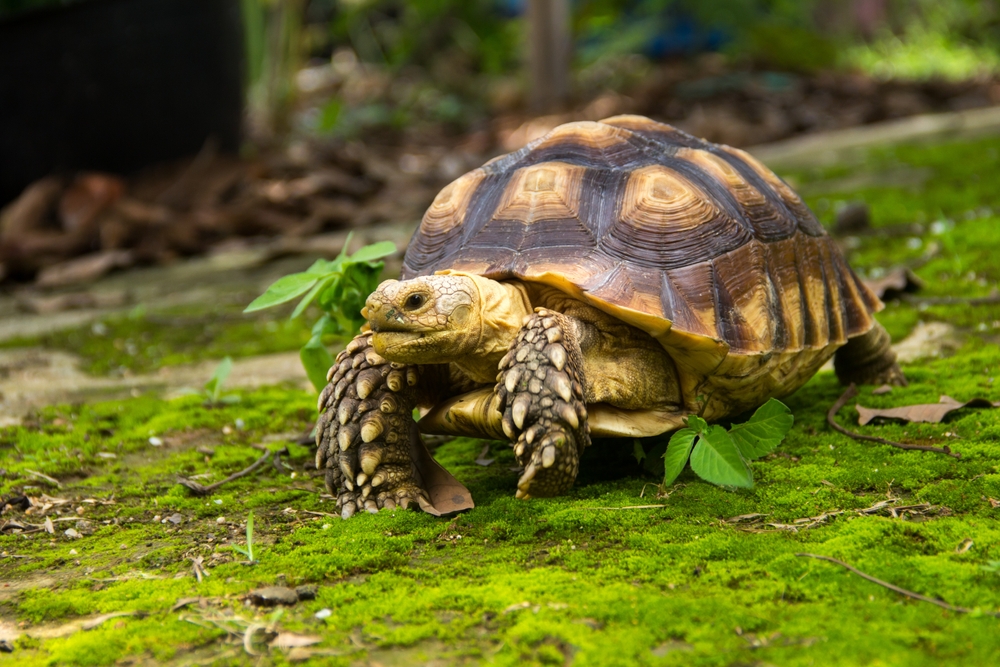Tortoises are increasingly becoming popular as family pets, offering a unique and rewarding experience for both adults and children. Unlike traditional pets, tortoises provide a slower pace of companionship and a fascinating glimpse into the world of reptiles. Their calm nature and relatively simple care requirements make them ideal for families looking to teach children about responsibility and the importance of animal care. This article explores the benefits of tortoises as family pets and offers tips on how to provide the best environment for your new shelled friend.
Why Choose a Tortoise as a Family Pet?
Tortoises are low-maintenance pets that can live for several decades, providing a long-term companion that can grow alongside your family. They are generally docile, slow-moving, and require less hands-on attention compared to pets like dogs or cats. This makes them an excellent choice for families with busy schedules or for those living in smaller homes or apartments.
Here are some reasons why tortoises are great family pets:
- Educational Value: Caring for a tortoise can teach children about life cycles, ecosystems, and the importance of responsible pet ownership. It also instills a sense of empathy and compassion as children learn to meet the needs of another living being.
- Minimal Allergens: Unlike furry pets, tortoises don’t shed dander, making them a suitable option for families with allergies. Their habitats are easy to maintain and do not contribute to indoor allergens, providing a clean and safe environment.
- Long Lifespan: Tortoises are known for their longevity, with many species living over 50 years in captivity. This long-term commitment can help teach children about the importance of sustained care and the responsibilities that come with it.
Key Considerations When Keeping Tortoises
While tortoises are relatively easy to care for, they do have specific needs that must be met to ensure they thrive in a domestic setting. It’s essential to educate your family about these requirements before bringing a tortoise into your home.
1. Housing and Habitat
Tortoises require a spacious and secure habitat that mimics their natural environment. This can include a large indoor enclosure or an outdoor pen, depending on your location and the tortoise species.
- Indoor Enclosures: Provide a well-ventilated enclosure with a substrate that allows for burrowing, such as soil, coconut coir, or cypress mulch. Include hiding spots, basking areas, and a shallow water dish for drinking and soaking.
- Outdoor Pens: If you live in a suitable climate, outdoor pens can provide a more natural environment for your tortoise. Ensure the pen is escape-proof, predator-safe, and has access to both sun and shade.
2. Diet and Nutrition
A balanced diet is crucial for the health of your tortoise. Most tortoises are herbivores, thriving on a diet rich in leafy greens, vegetables, and occasional fruits. It’s important to provide a varied diet that mimics what they would find in the wild.
- Leafy Greens and Vegetables: Offer a mix of greens such as dandelion leaves, collard greens, and mustard greens. Supplement with vegetables like squash, bell peppers, and carrots.
- Calcium and Vitamins: Ensure your tortoise gets enough calcium, either through dietary sources or supplements. This is vital for shell and bone health, especially in growing tortoises.
- Hydration: Always provide fresh water. Tortoises not only drink but also soak to stay hydrated, so a shallow dish large enough for soaking is essential.
3. Temperature and Lighting
Tortoises are cold-blooded reptiles that rely on external heat sources to regulate their body temperature. Providing appropriate heat and UVB lighting is crucial for their well-being.
- Heat Source: Use a basking lamp to create a warm area in the enclosure, typically around 90-95°F (32-35°C). The rest of the enclosure should be cooler to allow the tortoise to regulate its body temperature.
- UVB Lighting: UVB light is necessary for the synthesis of vitamin D3, which is essential for calcium absorption. Without adequate UVB exposure, tortoises can develop metabolic bone disease.
Teaching Responsibility Through Tortoise Care
Caring for a tortoise can be an excellent way to teach children about responsibility and the commitment required to look after a pet. Here are some practical ways to involve your children in tortoise care:
- Daily Feeding: Assign your child the task of feeding the tortoise. This helps them understand the importance of providing consistent care and recognizing the dietary needs of the pet.
- Cleaning the Enclosure: Involve your child in cleaning the tortoise’s habitat. This not only teaches hygiene and cleanliness but also allows them to learn more about the tortoise’s environment and behaviors.
- Monitoring Health: Teach your child to observe the tortoise for signs of good health or potential issues. This could include checking for clear eyes, a smooth shell, and active behavior.
Conclusion
Tortoises can be a wonderful addition to any family, offering unique companionship and educational opportunities. They require thoughtful care and attention, but in return, they provide a lifelong connection and a valuable lesson in responsibility. Whether you’re new to reptile ownership or an experienced pet parent, tortoises offer a distinctive experience that enriches the lives of both children and adults alike.

“Analyst. Web buff. Wannabe beer trailblazer. Certified music expert. Zombie lover. Explorer. Pop culture fanatic.”







More Stories
What are the 5 most spoken languages in the world?
Master the Art of Applying Acrylic Nails at Home: A Complete Guide
Speaking English: I checked Linguacafes in Lille for you